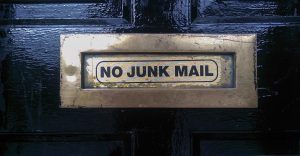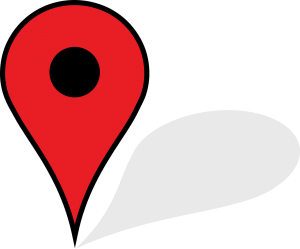Negative Reviews Generally Shouldn’t be Deleted, but There are 7 Exceptions
You’ve read about the risks of deleting bad reviews. And you’ve read about the benefits of keeping bad reviews but not all negative reviews are created equal. Every once in a while, you get a negative review that just isn’t worth keeping, but where is the line? When is it okay to delete a review?
We’ve built a handy list of the types of negative reviews that are okay to delete or ask for them to be deleted because, let’s face it, sometimes it can be confusing or tempting to delete every negative review.
The Types of Negative Reviews That Are Okay to Delete
-
The Spam Review

Spam is easy to spot and easy to say goodbye to for obvious reasons. If you have a review on your business listing that is redirecting people to a different site or trying to sell something of its own, kiss that review goodbye. It’s perfectly acceptable to get rid of a spam review because your customers don’t want to see it either and any links the spam comment provides could put them at risk for viruses or other dangerous material.
-
Irrelevant Review
You’ve seen it before, a review that rambles on about irrelevant items, information, or details outside of your control. Maybe the customer was complaining about it being too windy outside or maybe they were unhappy with the construction noise from across the street while they were eating. While we generally suggest you to respond kindly back to these reviews first, it’s not unacceptable to delete them if they have no relevance to your business whatsoever. After all, a review that tells others nothing about your business or service/products is not helpful to potential customers.
-
The Offensive Review
The age of the internet has left some people ready to say and post almost anything. Reviews that contain harmful language or pictures, however, are still not tolerated on most platforms. In this case, it can be justified to delete reviews that contain content such as hate speech, harassment, discrimination, threats, violence, inappropriate pictures, or other offensive or unlawful content.
-
The Revealing Review

Whether the cause is an accident or something a little more menacing, a review that reveals personal information is best to delete. With the risks associated with revealing personal information about you, a customer, or an employee in a review is dangerous. Revealing information could include addresses, phone numbers, credit card numbers, full names, or any other personally identifying information. It’s best to stay on the safe side and delete reviews that contain personal information.
-
The Fake Review
A particularly vengeful customer can get the idea to leave multiple bad reviews with different profiles. In addition, someone who has never used your business could leave a review as well. While we suggest you still respond to them kindly and make amends, these fake reviews are definitely okay to remove as a last resort. Multiple fake reviews skew your ratings falsely and harm your reputation. They are usually left in rapid succession and describe similar experiences.
-
The Competitive Review
Do you know for a fact that a competitor left a bad review on your Google listing? That’s a big red flag for Google and they will help you remove that review from your listing. On other platforms, it’s not very noble either and considered okay to delete. Your competitor probably didn’t use your service so not only is it purely spiteful but it’s also fake. Delete away!
-
The Accidental Review

Not everyone is out to get you, and sometimes an honest mistake happens. If someone leaves a review, either positive or negative, on your listing that is clearly not meant for your business, it’s alright to remove the review. It is not helpful to your customers and doesn’t do anything for your business either.
There you have it, while it’s generally not a good idea to delete any reviews, there are a few exceptions. Keep your review section honest, accurate, and helpful by monitoring your reviews for any of the above types.